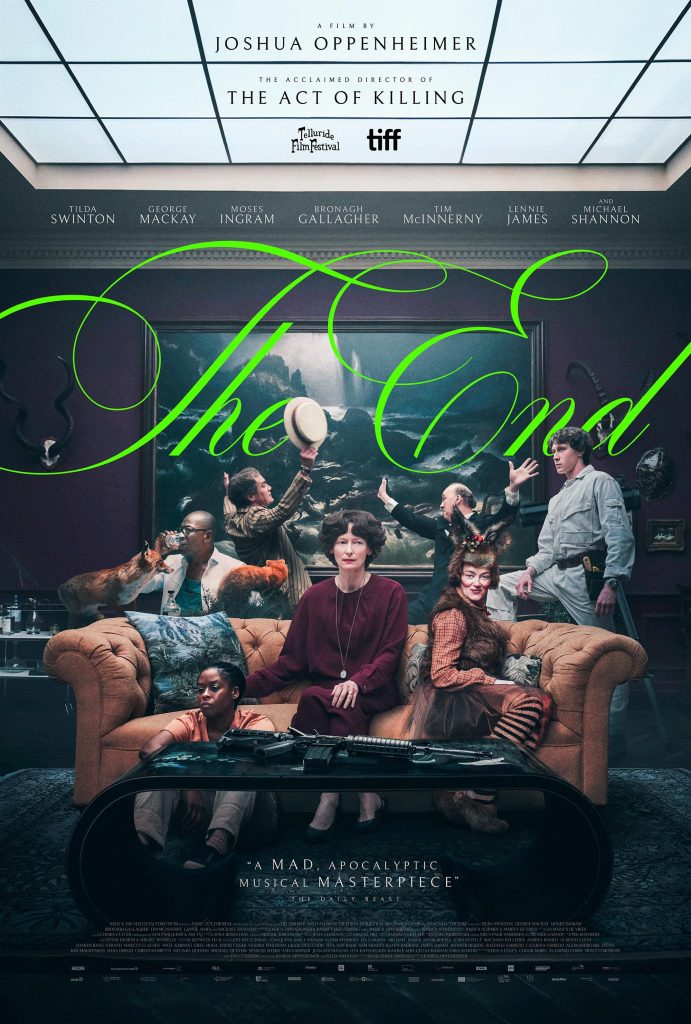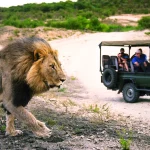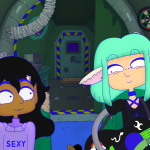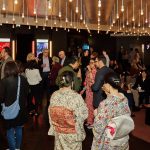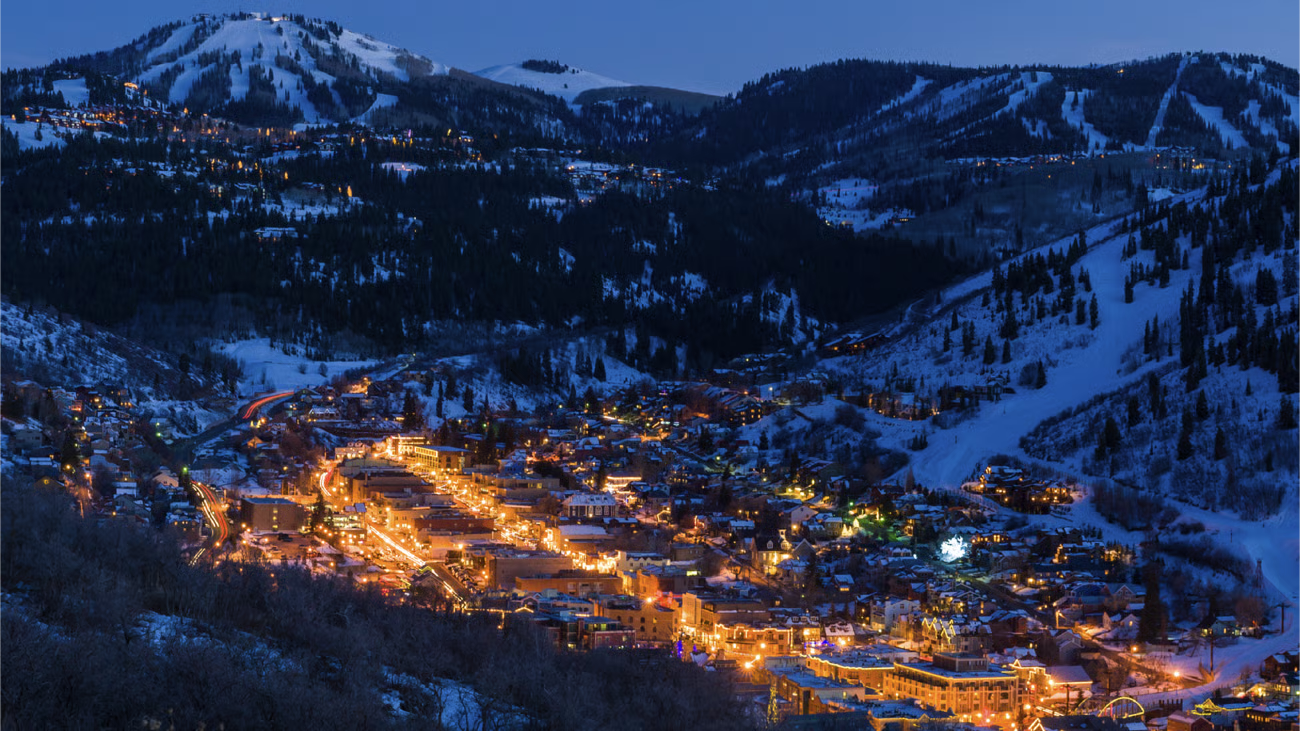Two-time Oscar-nominee Joshua Oppenheimer’s latest film, The End, is coming to Sydney film festival. It premiered at the 51st Telluride Film Festival in 2024.
It’s an end-of-the-world apocalyptic musical, directed by Oppenheimer and co-written by Oppenheimer and Rasmus Heisterberg, with songs by Joshua Schmidt and Oppenheimer. A stellar cast includes Tilda Swinton, George MacKay, Moses Ingram, Bronagh Gallagher, Tim McInnerny, Lennie James, and Michael Shannon.
The story is set 25 years after environmental collapse, with a final family, Mother, Father and Son, confined to their palatial bunker. They cling to the rituals of daily life—until the arrival of a stranger, Girl, upends their happy routine.
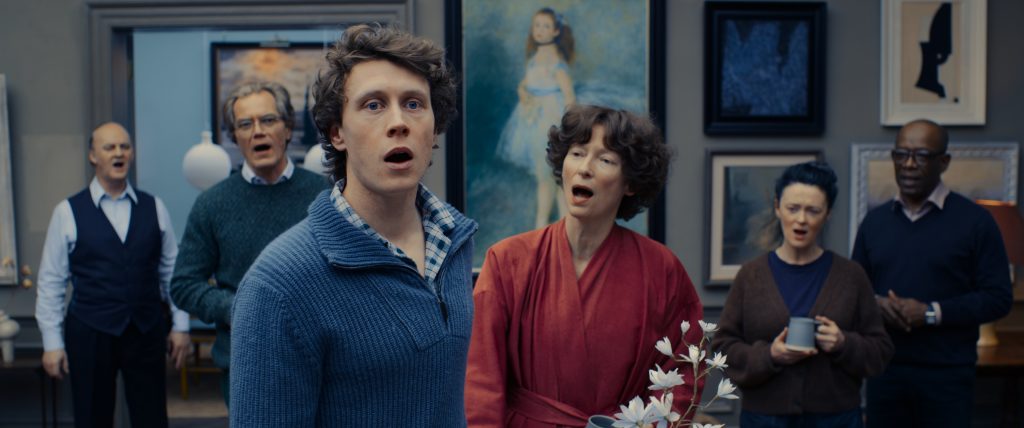
Oppenheimer’s debut feature, the musical documentary-fiction hybrid, The Act of Killing (2012) not only garnered an Oscar nomination but won 72 awards worldwide. His second film, The Look of Silence (2014) also scored an Oscar nomination, plus five awards at the Venice Film Festival, and another 72 awards.
His work has had impact well beyond festival juries. In response to public discussion around The Act of Killing and The Look of Silence, the US government has declassified 30,000 previously secret files detailing America’s complicity in the Indonesian genocide.
Irresistible was lucky enough to sit down with Joshua to discuss The End, working in the musical genre, and with the legend Tilda Swinton. We also got into what activism means to him now, and how he views his homeland the United States from the vantage of his new base in Denmark. He was in Greenland when we chatted to him, where he clearly feels not only inspired, but attuned to the political and ecological crises that are unfolding there, and everywhere.
You’re normally based in Copenhagen. Where are you right now?
I’m in northeast Greenland in a town called Ittoqqortoormiit. It is at the mouth of the largest fjord and is the most isolated little settlement of 350 people. It’s 850km north of the next town and there’s nothing north of here for 1500km. There’s a snowdrift outside the window. We arrived here in April and we’ll stay till June. It is the Midnight Sun season now so it’s very light, and I’m dreaming up two projects while I’m here, one set in Greenland, one not.
The End is a great film. It seems to be talking a lot about speaking up and taking action, rather than sitting by and letting bad things happen.
We’re all closer to perpetrators of the climate crisis than we are victims, certainly if you’re someone who is watching films in film festivals or arthouse cinemas. We’re all complicit, but the film isn’t there to scold people. It’s about the power structure, and the global oligarchy that’s chipped away at our democratic agency, making it more and more difficult for our voices to be heard as we demand climate action. The film is also an allegory for each and every one of our families. We’re asked to look in the mirror and see ourselves. The characters are nameless because they are all of us. I see myself and people I love in all of them.
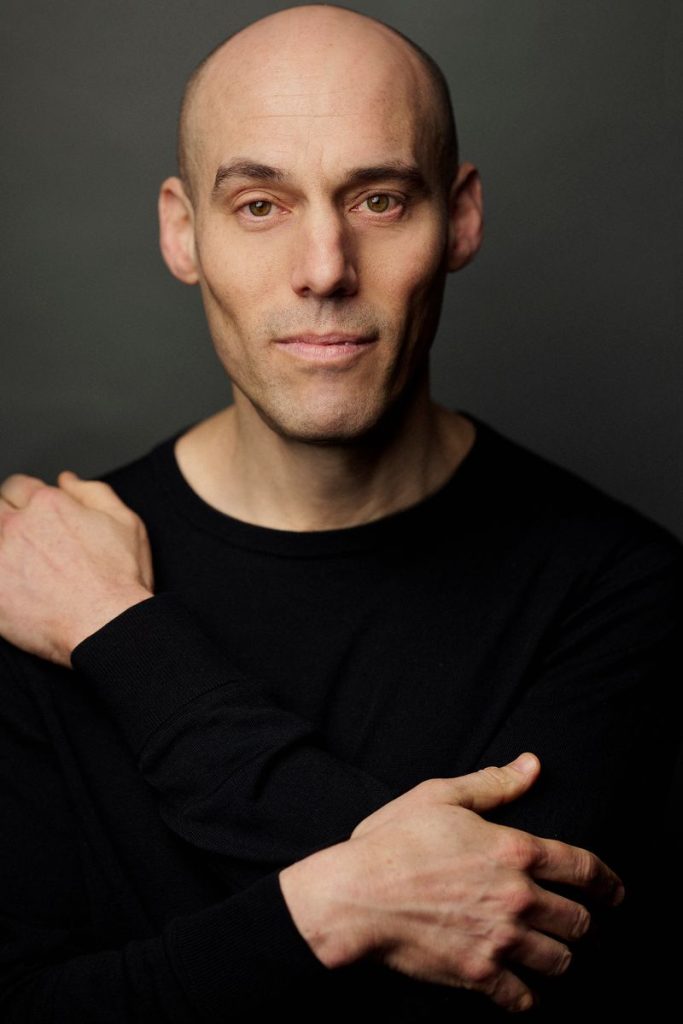
Would you say the notion of who is and isn’t in a family is a theme of the story?
There’s a sense that this family in the film is the last human family, but it’s also the entire human family, and every human family. We diminish our humanity and our capacity for love by clinging to the fiction that we can protect our nuclear families to the exclusion of the wider human family, on which we are all dependent – and inseparable. When we limit our compass of empathy in this way, we actually create our own bunker.
I noticed this particularly at the beginning of the release of The End last year, when every time I read a story about migrants trying to reach Europe and drowning in the Mediterranean, or I read stories about the genocide in Gaza, I would search for just the right outraged or horrified emoji to post on social media, and then by feeling that I’d done something, give myself permission to move on to something more fun.
Did the knowledge make you more of an activist?
If I can just stay with Gaza for a moment: I’m a filmmaker whose previous work explored the legacy of genocide, and as Jew I grew up with the mantra that such atrocities must never happen again. In Gaza, genocide is being perpetrated in my name, yet in the weeks following the premiere, in screening after screening, I found myself too frightened to speak out about it, even as I was emphasizing the importance of honesty. When I’d get home and look in the mirror, I saw fear and hypocrisy and complicity, so I took a deep breath and began speaking publicly about the genocide. The same happened with climate. I began going to climate marches.
My grandparents left Germany to live in the United States, and now the United States is becoming a xenophobic dictatorship like the one we fled. I realised I needed to step out of my bunker, out of my bubble of passivity and complacency, and embrace the widest possible human family through activism and solidarity. To experience that wider solidarity is to experience what makes us fully human, I’ve learned, and it’s a wonderful, enlivening experience, and much more than a silver lining on the mounting crises. The End has helped me discover this, because I’ve felt compelled to practice what I preach: the film is about self-deception, and if I’m not acting on my convictions, I’m becoming a bit like the film’s Son, Mother, or Father.
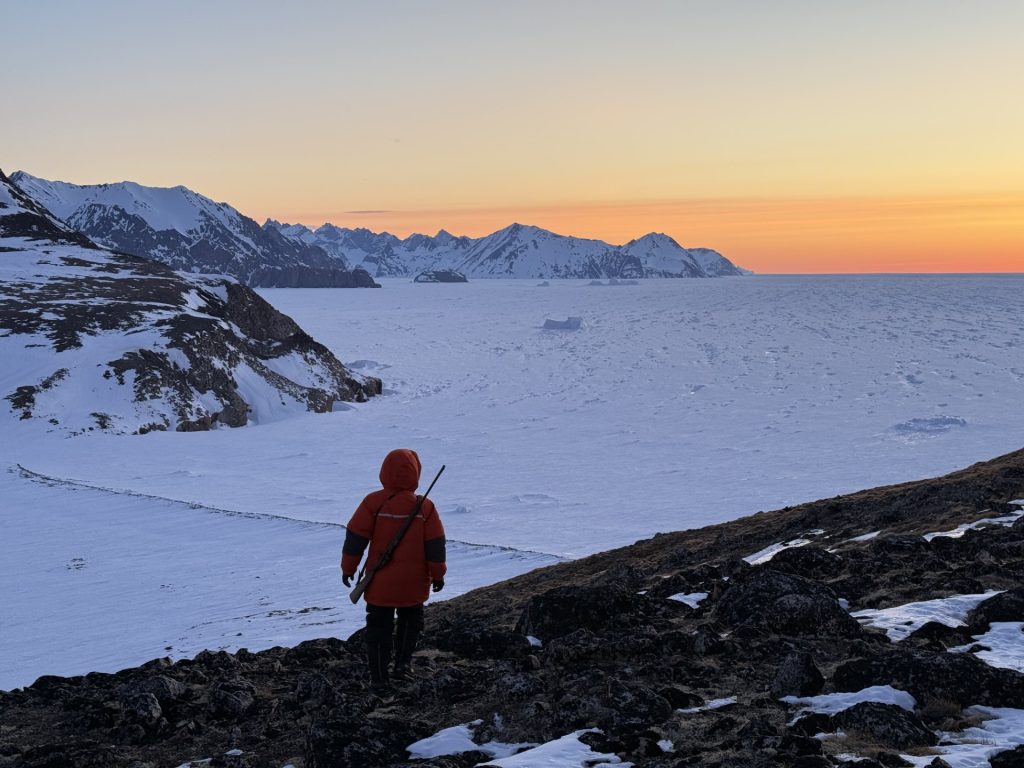
It feels like there’s an invitation to change in the film, rather than trying to force people to?
The real invitation of the film is to face self-deception. When we lie to ourselves, we obscure the world and convince ourselves that we’re blameless. Our capacity to be honest with ourselves and all we care about is in fact our capacity for real love. It becomes impossible to take care of the people and the planet that we love when we’re not honest about our role in the problems. You can’t change when you’re too defensive or ashamed or frightened to acknowledge your mistakes.
As a species we’re careening towards an abyss. When you tell yourself, as the family does in the film, that the future is bright, that the sun will come out tomorrow, you can remain absolutely passive and continue toward destruction. Like Wile E. Coyote, you run off the edge of that abyss and for a few moments tell yourself that you’re still running, when in fact, you’re already in free fall.
There’s a strong idea in the narrative about fictions, and what people are choosing to believe from all the information around them.
We’re constantly receiving messages about how we’re rendering the earth uninhabitable, just as we are about the cruelty that we systematically inflict on the stranger who seeks only to escape conditions of misery that we knowingly impose on them, and that underpins our material prosperity. We habitually tell ourselves little fictions, finding ways of minimising the problem or reassuring ourselves that there’s nothing we can do about it anyway, or that we’re doing enough. We sigh and tell ourselves that things will work out for the best. The film tries to intervene in those mechanisms of cognitive dissonance.
If the viewer leaves the cinema and recognises how they’re not being entirely honest with themselves. If they can, through identification and empathy, find it more difficult to swallow those lies, and to remain passive as a result of such lies, then the film will have done its job.
Do you think that people who voted for Trump were looking for that kind of cognitive dissonance? That they were looking for a place to hide?
I didn’t vote for Trump and I worked quite hard to try and prevent the outcome that we had last November, but I do think it’s worth pausing and thinking about the minority, and it is only a minority of the population, that actually voted for him.
Even though he’s saying that the climate catastrophe is a hoax and there’s nothing to worry about, I don’t believe that most of his voters actually believe that. I believe he’s activating a kind of cognitive dissonance rooted in resentment and bringing about cultural polarization. Various grievances can be expressed by repeating the jingoistic slogans of a team, of a tribe.
I think in their heart of hearts the Trump voters feel there’s nothing they can do about the climate, that climate change is inevitable, and they’re despairing. They are living in that despair, and its attendant cynicism, and then performing to the world that they don’t believe in climate change. It’s the cognitive dissonance they see right at the top.
You mean how Trump is a climate change denier and yet he’s making plans for a future where the climate has changed?
Trump wants to have Greenland because he knows the world is warming and he knows the Arctic shipping lanes are becoming accessible to Russian and Chinese ships. He knows that minerals are becoming available to mining as the ice sheet melts. He’s acknowledging the reality of climate catastrophe, even as he’s rallying his supporters with claims that the problem doesn’t exist.
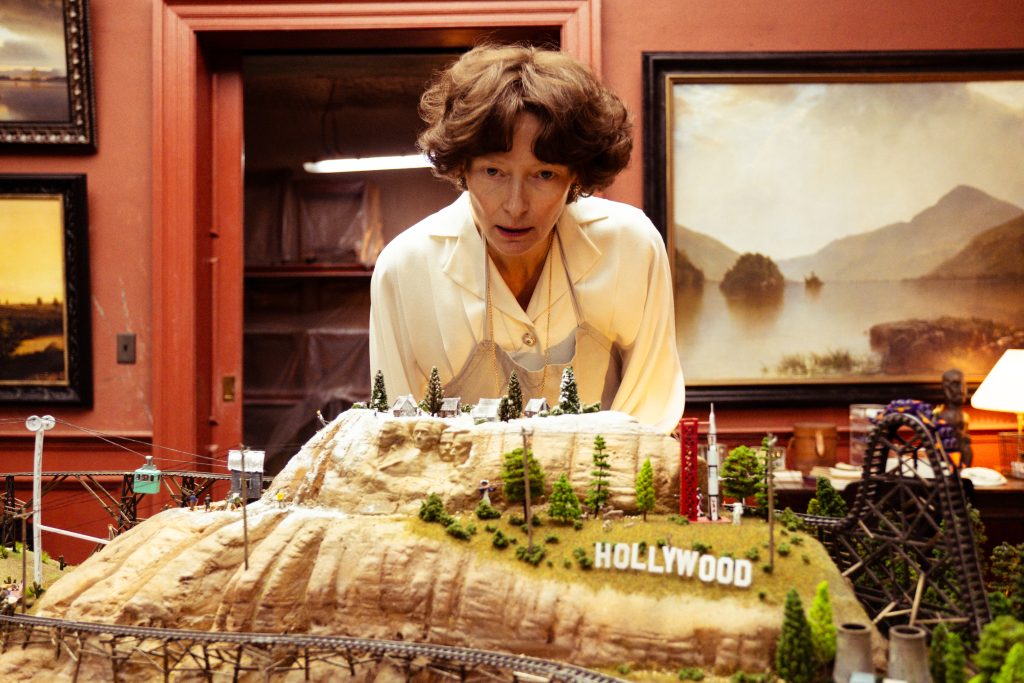
In the film the family live in a bunker. Billionaires around the world really are prepping places like this. How did you envisage the meaning of the bunker?
One of the visions of the film is that the family is in hell. A hell and a prison of shame and fear. They don’t leave, not necessarily because they couldn’t go up and have a look at the sky, but because they don’t want to be confronted with the reality of what they’ve done. So, the hell that they’re living in, despite all its luxuries, comes from not having lived well.
My husband is Japanese and grew up in a Buddhist family. I’ve always had an acute fear of death, and when he discovered what a neurotic and anxious person I can be, he taught me this mantra that he had been brought up with.
It’s in my nature to grow old.
It’s in my nature to get sick.
It’s in my nature to lose the people I love. It’s in my nature to die.
How then shall I live?
The film is pointing out that the end is our mortality, and the mortality of the species, and the mortality of truth should we all die. The value of our life lies in how we live it while we’re here.
You visited an actual billionaire bunker?
After The Act of Killing and The Look of Silence, I was desperate to make a third film in Indonesia about the billionaires who enriched themselves by profiting off the violence and fear that was pervasive after the killings. I wasn’t allowed back into Indonesia though, I was banned, so I started investigating oligarchs who made their money through violence elsewhere. I found an oil tycoon who used violence and his country’s military to obtain oil concessions. He invited me to see a bunker he was thinking about buying, and as we toured this underground palace with his family, I was struck by questions of guilt. En route to the bunker, his wife was on Skype with her sister who had just had a baby, and she was cooing over this new baby, and when we were inside the bunker I asked if, when the time came, they would bring her sister and the baby, and she replied that no, there’s not enough room.
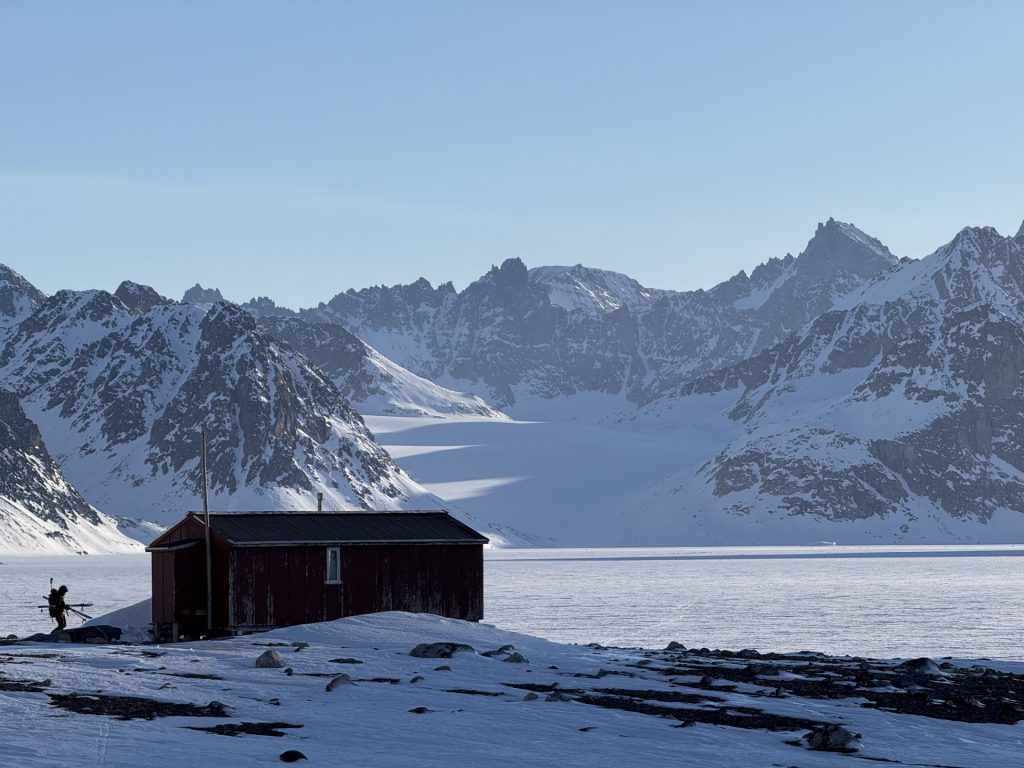
Did they not seem troubled by guilt?
They firmly believed that climate change would lead to social breakdown, a dystopia above ground, and ultimately world war. Walking through their bunker, I was haunted by questions of guilt: how would they cope with their responsibility for the catastrophe from which they would be fleeing? How would they cope with their remorse for leaving loved ones behind? Would they raise a new generation as a kind of blank canvas onto which they could paint an idealised portrait of themselves? Those questions became the film.
How much did the idea of what the film would be change during this time?
I understood that my initial idea of a fly-on-the-wall documentary set in the bunker wasn’t going to happen. It was too far into the future, and then I was never going to be invited along! So The End, while it appears to be about the near future, became about our present, and how we live now. When we face our mortality, we all have a choice- whether to face our regrets and change course so that the remainder of our lives, whether long or short, can be meaningful. The film invites us to look at at the importance of honesty with ourselves and the people we love now, in the present, if the goal is to live meaningful, loving, good lives.
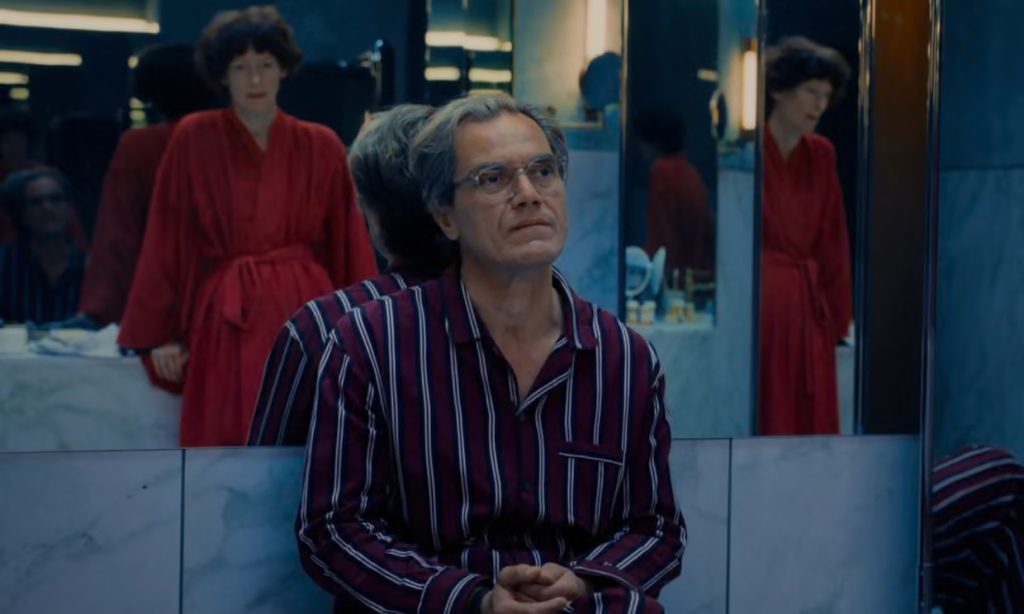
Tell us about how brilliant it was to have Tilda Swinton in The End.
When I was writing the songs, I was in the polar night in the north of Norway. There were aurora flickering overhead. I was just pivoting from working with a proxy cast from Denmark to workshop the songs, to casting the real actors. Suddenly I was looking at these northern lights one night, and I thought we need actors whose faces can flicker with every strain of longing, every eruption of truth. I thought of Tilda first and foremost, the way she wrestles with guilt in the film Michael Clayton. I loved Tilda before I knew her. When I reached out, she was so excited about the script, and she knew my other films. She was excited about the music and the chance to sing. She approached the whole thing like a fairy tale.
She always seems to bring that energy to projects.
We treated it like a fairy tale challenge, and there was a kind of enchantment that she brought to the whole process. Tilda has this perpetual beginner’s mind. While she is magisterial in her command of the material, she occupies that paradox of being completely open and free.
She was especially excited about the challenge of singing, it was a totally magical, unknown place for her, one where she was completely vulnerable and exposed. And that’s her comfort zone! Everyone is exposed when they sing, which is why most of us only really belt out songs in the shower. She embraces that vulnerability in a beautiful and open-hearted way. There was a freshness she brought to the set – every take was a chance to play in the sandbox. She taught me very quickly that the best thing I can do as a director is, after discussing the scenes and some rehearsing, to step back. I let her and her equally brilliant colleagues on the film just bring me gifts. They surprised me and came up with the most amazing, uncanny, beautiful choices.
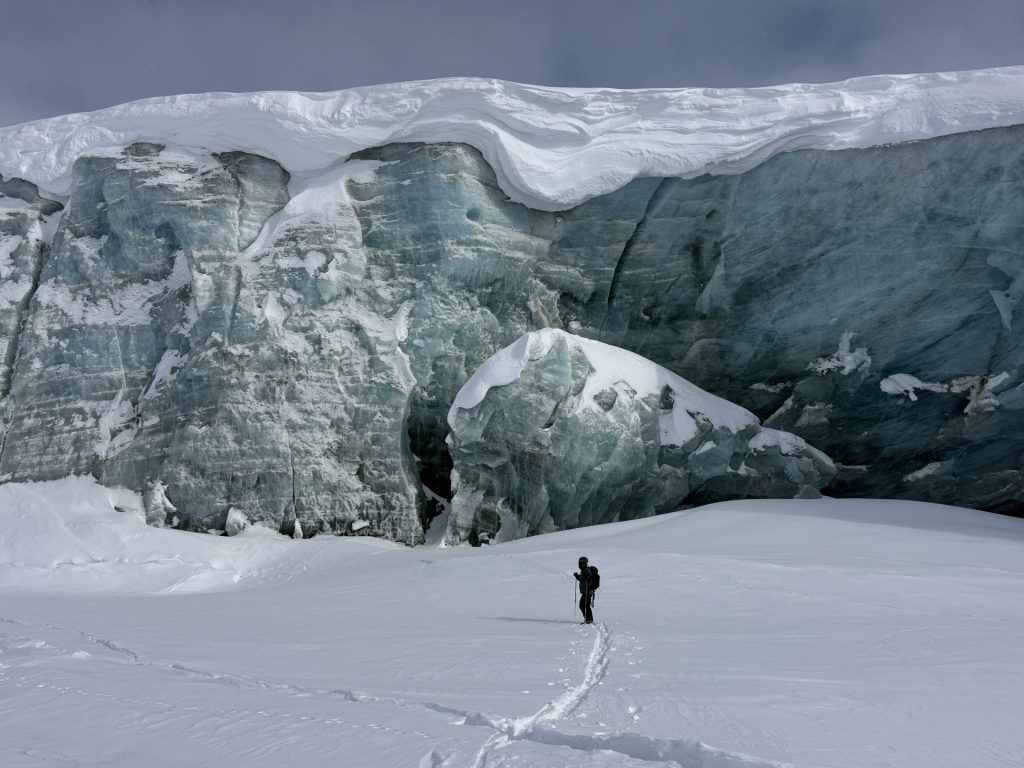
Is there a scene you remember that happening in?
There is one little scene in the film where Tilda is sitting in the back of the family pick-up truck after having tried (and failed) to throw the newly arrived young woman out of the bunker. She’s in a tunnel of the salt mine where they live, and there’s a ventilation tube, which is actually the air supply for the family in the film, and for the mine itself. It was also the air supply for us, the production team. We were shooting for three weeks in this mine, hundreds of meters under Sicily.
The idea was that something would happen which would startle her as she was recovering from the violence of trying to throw the girl out. In a shot of the tube abruptly inflating, Tilda did seem startled, but there was something much more spiritual. Afterwards I was so moved, and I asked her what she working with, and she told me she had a sense of the dead earth breathing. When I asked her how it made her feel, she said it gave her such a sense of relief.
It was just such a brilliant choice in this story, and this one example is a masterclass in how an artist can make a choice that is in tension and dissonance, or even in counterpoint, to the obvious idea of the scene. If the choice is fresh and insightful enough, it can lend the scene a subtext which is not just enriching but completely miraculous. That was what Tilda is like to work with.
Now you describe that flickering of emotions on the actors’ faces, it sounds like the northern lights you were working under when you were writing?
Yes, I cast for that. They all heard that image and worked with it. In the four-week rehearsal period we really mined the idea of the secrets that hold a family together. This family in The End is united by the unspoken pact that they will never tell their secrets to the son. Of course, the son has gleaned things himself and knows much more than the family think or can admit to themselves. Secrets are so important and that was why we needed their faces to register, to show the longing that comes, when you encounter forbidden truths – the terror and the excitement.
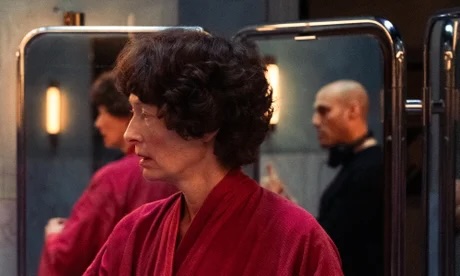
Was it an early decision to make The End a musical?
The songs in this film are the characters’ active attempts to lift themselves up out of the abyss, especially as the arrival of the girl forces them to face long-buried truths. We see them struggle to convince themselves through the act of singing that their future is bright, that everything is okay. The songs are therefore these active journeys of attempted self-deception. In the musical genre, the cliché would have us believe that singing is an expression of characters’ deepest truths, but I felt the songs here should be lies, and silence should hold the truth. And I felt that if the songs were to emerge successfully out of moments when characters are confronted by forbidden truths, the cast had to fully exploit the subtextual possibilities of the spoken dialogue. That is, the subtextual possibilities of speech had to be saturated to justify lifting into song. There’s an upward propulsion in song, and the story is taken further: They reach for new lies in song, struggle to convince themselves of them, and fail – that is, they hit a wall of truth, discover that they’re lying to themselves, that they’re trying to convince themselves everything’s fine when it’s clearly not, and at such moments the lies get stuck in their throats and they can’t sing anymore. They hit the truth – and the music stops.
Before we finish, as you’re in Greenland- how are the people there feeling about all the attention from the US government?
They’re worried, because of course, there’s already an American military base here in Greenland. Denmark was occupied by Germany during World War II when the Germans brought their naval ships up into Copenhagen harbour and said- this is ours! Denmark didn’t have the capability to resist. If America sailed some ships up here now and said- this is ours- it would be America’s. Maybe not according to international law, and maybe such an annexation wouldn’t be recognised by the UN or the EU, but the threat of America is taken very seriously. Whatever affection there once was for the United States has gone. I think America is trashing its relationships and friendships pretty quickly.
When JD Vance came to visit Greenland in March people were pretty frightened and angered. It was obviously an intimidation tactic – and seen as such.
At the post office here in this tiny town Ittoqqortoormiit there’s a sign on the counter – it says MAGA: Make America Go Away. It has the Greenland flag on it with a big snarling polar bear lunging menacingly in front of it.
I like to think Trump’s efforts to bully other countries and challenge their basic democratic sovereignty and the right to determine their own future is backfiring. We’ve seen the selection of a relatively progressive American Pope, and there was the Canadian election. There is resistance.
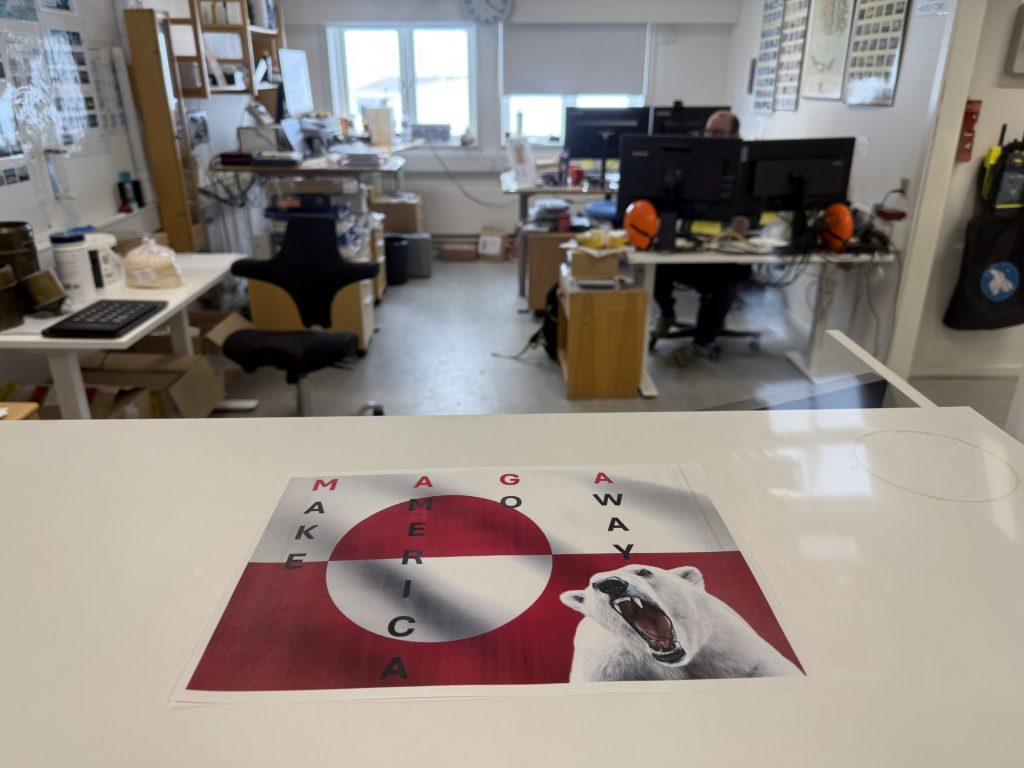
The End, directed and co-written by Joshua Oppenheimer, screens as part of the 2025 Sydney Film Festival.
4-15th June 2025
